Editor's Note
Why Duterte’s China Strategy is Headed for a Free Fall
In the two years since President Duterte assumed office, we have seen better relations with China due to the decision not to emphasize the territorial disputes and to instead focus on strengthening economic cooperation. In particular, the country’s economic managers have been very gung ho in attracting Chinese investments and contracting Chinese financing to support the administration’s Build Build Build! infrastructure program. Meanwhile, our fishermen have returned to their fishing grounds in Panatag Shoal, the Armed Forces are able to conduct repairs on their occupied features, and not just the optics but the actual atmosphere of political ties have tremendously improved. China is actively wooing Philippine support for its Belt and Road Initiative, even offering to relax immigration controls to allow in Filipino English-language teachers and – possibly in the future – caregivers and household service workers. China has also become the Philippines’ second largest source of tourists.
However, not all is going smoothly and there are strong undercurrents threatening to create new waves of tensions between the two sides.
The problem relates in part to the country’s continuing political polarization that pits the pro-Duterte camp against the supporters of Aquino. Poor management of the China policy shift during the political transition -- particularly the sudden pendulum swing from Aquino’s confrontational stance against Beijing to the opposite but equally extreme direction of perceived submission by Duterte – has left many citizens confused as to what the country’s interests and strategies in the West Philippine Sea (WPS) ultimately are. The incumbent president’s exaggerated fondness for China and trust in its leaders’ assurances are not likely to be shared by the majority of the citizens, which is not surprising given the continuing island construction and military build-up China proceeds to undertake. Duterte is accused of wasting the opportunity to draw political gains from the hard-earned legal victory in the arbitration case filed by Aquino, even as the expected windfall in Chinese economic largesse that he promised has also failed to translate thus far into tangible development benefits. In this light, pressure is building up from partisan groups, legal pundits, foreign policy analysts, the general public, and even segments of the bureaucracy demanding that this government account for the lack of progress in defending WPS interests.
But the pressure on Duterte is not just confined to domestic stakeholders. The shift in Philippine policy has helped trigger a chain reaction on the part of other claimant states (particularly Vietnam), ASEAN countries, neighbors like Japan and Australia, and even a major power like the United States. Because of the Philippines’ abandonment of its frontline role in the South China Sea and China’s perceived rejection of a rules-based approach to managing the disputes, these other states were forced to step up their own initiatives in responding to an increasingly robust Chinese presence and influence.
An arms race is now said to be taking place in Southeast Asia, in anticipation of the confrontations to come. Some countries have moved to strengthen bilateral cooperation directed at building defense and maritime law enforcement capabilities of weaker neighbors. The so-called “Quad” – a four-party security arrangement involving Australia, India, Japan and the United States that was first touted many years ago – was recently re-established to act as a balance to China’s growing influence. Of even greater significance was that the US government in an official document labeled China its “strategic competitor” and began to launch more frequent naval exercises, signaling tougher times ahead. US president Donald Trump redefined his country’s approach to security by prominently touting the “Indo-Pacific” concept, giving India – the other Asian power – pride of place as a full stakeholder in what used to be the “Asia-Pacific”.
Clearly, despite the major consequences of the radical shift in Philippine foreign policy towards China, the security dynamics in the region do not entirely or even significantly depend on what Duterte says and does with his China policy. But the reverse is true: the success of Duterte’s China policy in achieving greater security and access to resources of the WPS are tied to factors well beyond the Philippines’ control. The first factor is China’s own determination to become a maritime great power and its apparent hopes to establish itself at the apex of a new regional hierarchy. This is bound to test relations with all of its neighbors, who are just as as jealous of their own sovereignty and autonomy. The second is the brewing economic and security competition between the world’s two biggest economies and military powers – the United States and China -- with the Indo-Pacific as its arena and the South China Sea the central stage of this arena. The Philippines, a US ally for close to 70 years, will be caught in the crossfire.
Unless the Duterte government takes cognizance of both the domestic public sentiment and the new regional realities, and until it is ready to build a more sophisticated approach grounded on political inclusiveness (domestically) and collective concerns (i.e. ASEAN, regional security complexes), its “China strategy” – assuming there is one – will be headed for a free fall.
This April 2018 issue of our newsletter provides sharp analyses on many of these recent developments. For your convenience, you may simply click on the links provided in this Editor’s Note. For more commentaries and coverage of our discussion forums and events, please visit our website at appfi.ph.
News and Events
New Programs, New Experts as Pathways Grows
For the first three years since it was established in 2014, Pathways had developed its program around the study of China and Philippines-China relations. Last year, we transitioned to a broader agenda by venturing into some ASEAN activities, as the Philippines became chair of the regional organization during its significant 50th anniversary year. In 2018, Pathways continues its growth by introducing three new programs. The Regional Security Architecture Program seeks to develop a better understanding of the evolving security environment, the role of multilateral and other forms of security associations, and institutional developments affecting Philippine and regional security. The Regional Integration and Connectivity Program hopes to help enable the Philippines to strategically navigate through its international economic engagements, and interact beneficially with regional states and multilateral institutions. On the other hand, the Maritime Development and Security Program explores how the Philippines can enhance the advantages and minimize threats and risks arising from its maritime environment, looking toward both the internal and external dimensions. Its concerns include issues relating to the Blue Economy, archipelagic development as well as maritime and territorial challenges that the country and the Southeast Asian region continue to face.
APPFI Joins ASEAN-ISIS
The Board of Trustees is proud to announce that Asia Pacific Pathways to Progress Foundation has become the Philippine member of the ASEAN Institutes for Strategic and International Studies (ASEAN-ISIS). Long-time observers of Asia Pacific regional affairs know ASEAN-ISIS as an indispensable network of think tanks from across Southeast Asia that has tirelessly injected policy ideas and advocacies for consideration of governments in the region. Pathways takes over the Philippine representation from the Institute for Strategic and Development Studies (ISDS), and hopes to continue the decades-long distinguished record of performance of ISDS under the indefatigable leadership of Prof Carolina Hernandez.
Lecture and Conference Circuit
Pathways President Dr Aileen Baviera was invited as a resource person in a number of policy and academic roundtables organized by government agencies. On February 20, the Foreign Service Institute hosted a discussion on the Quad and IndoPacific, where Dr Baviera spoke about “Chinese perspectives on the Quadrilateral Security Dialogue”. The regional security architecture was the subject of a discussion held at the Office of Strategic Studies and Strategy Management (OSSSM), Armed Forces of the Philippines on February 23, where Dr Baviera spoke on the “Evolving Regional Security Architecture” while Pathways research affiliate Mark Manantan was invited to present his thesis on “The Philippines’ Pivot to China”. Dr Baviera also delivered a lecture at the National Defense College of the Philippines on April 18, on the subject of “Geopolitics and Great Power Rivalry in the Asia Pacific” before students of the Masters in National Security Administration program.
APPFI Trustee appointed as Senior Mediation Adviser at UN
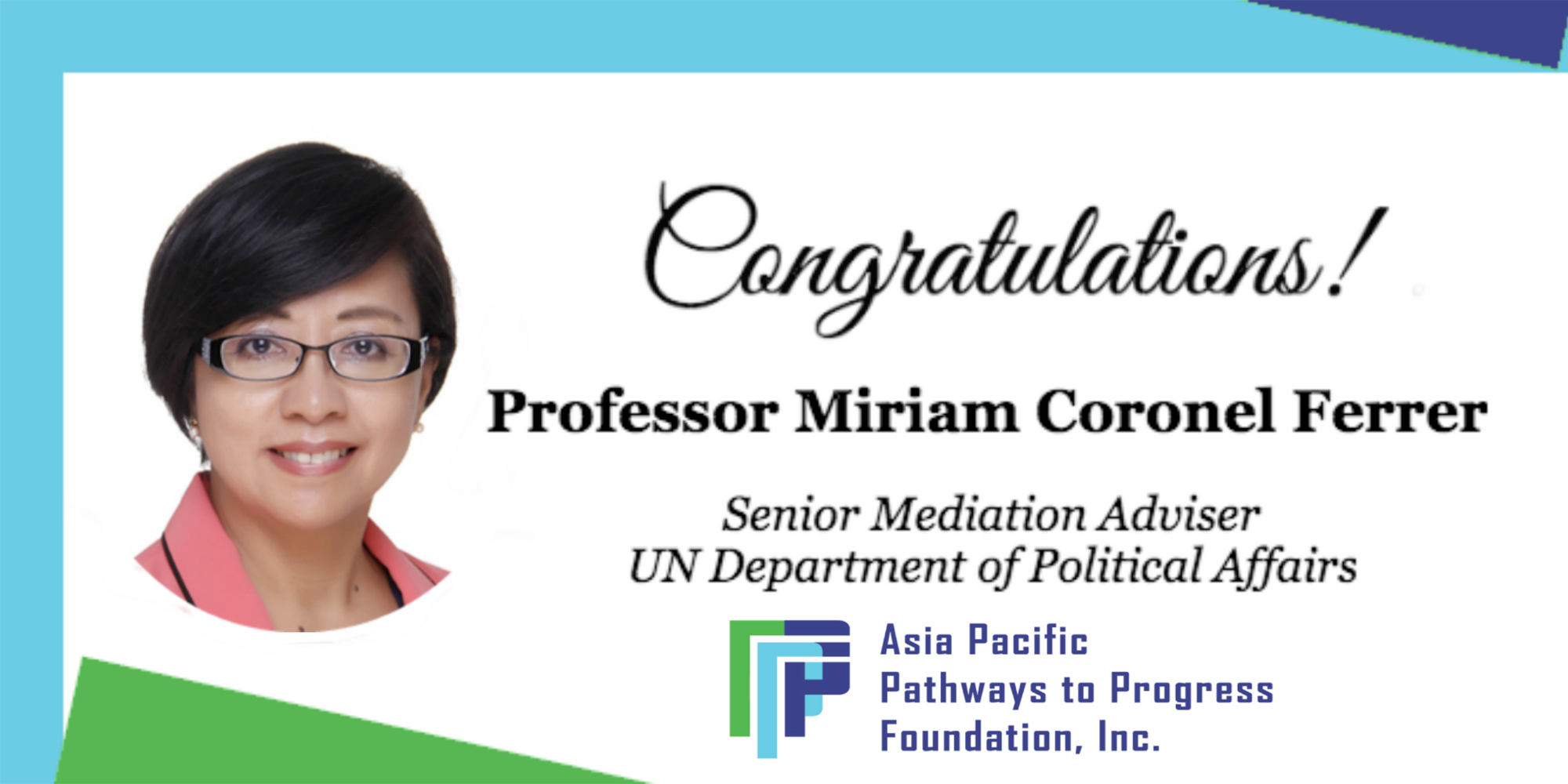
APPFI proudly congratulates its trustee, Miriam Coronel Ferrer, for her appointment as one of the Senior Mediation Advisers of the 2018 UN Standby Mediation Team under the Mediation Support Unit. The Standby Team was established in 2008 composed of full-time mediation experts that can be rapidly deployed to provide technical advice to United Nation’s officials and others leading mediation and conflict prevention efforts. Team members possess expertise in a wide range of issues that tend to arise in negotiations including constitution-making, gender issues, natural resources, power-sharing, process design and security arrangements.
PFVR joins Pathways as Senior Adviser
Former President Fidel V. Ramos graciously accepted the invitation to lead the Board of Senior Advisers of Asia Pacific Pathways to Progress Foundation.

President Ramos, who served as the country’s 12th President from 1992-1998, is known as one of the most pro-active presidents with regard to foreign policy. Following the closure of the American military facilities in 1991, he forged closer diplomatic and economic ties with the ASEAN countries, including with Malaysia which had heretofore refrained from sending its prime minister on state visits to Manila in light of the Sabah disputes. Under his watch, peace talks with the Moro National Liberation Front were concluded with the help of Indonesia and the Organization of Islamic States. At the same time, he preserved security ties with the US by endorsement of the Visiting Forces Agreement and the AFP Modernization Law. His government negotiated the first bilateral agreements with China and Vietnam on the South China Sea, containing principles for a code of conduct. He also presided over passage of the 1995 Migrant Workers Act.
Maritime Security 2018 seeks to harness PH sea power potential
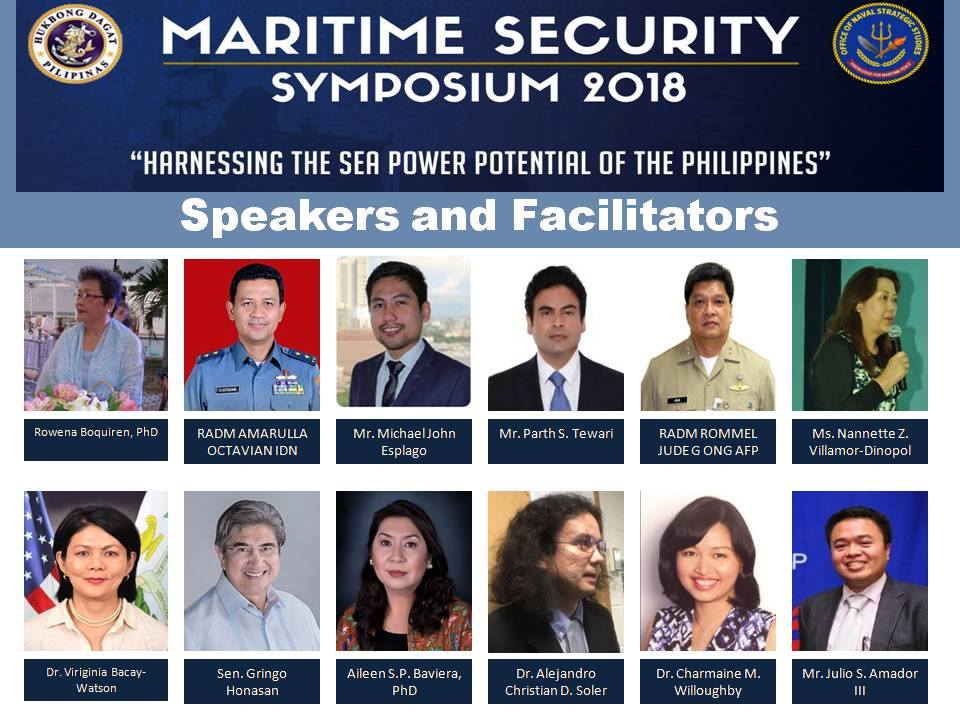
The Philippine Navy conducted its annual Maritime Security Symposium last May 10 at the New World Manila Bay Hotel, as part of the Navy’s pre-anniversary activities. The Symposium this year focused on developing Philippine sea power from the country’s potential based on its experience as an archipelagic state, hence the 2018 theme “Harnessing the Sea Power Potential of the Philippines.”
Cooperation Agreement Inked with Shanghai Institutes for International Studies
APPFI (also commonly known as Pathways) entered into a Memorandum of Understanding with the prominent Chinese think tank, the Shanghai Institutes for International Studies. Currently led by Professor Chen Dongxiao, SIIS has been one of the hubs of regional Track Two dialogues and a prominent source of policy advise for the Chinese government on foreign affairs for over fifty years. It was ranked one of the top ten Chinese think tanks In 2006, and one of the top ten global think tanks (non-American) in 2008. SIIS comprises seven institutes and six research centers, and has 106 full-time research fellows and staff. Among its current regular activities is a conference on regional security architecture.
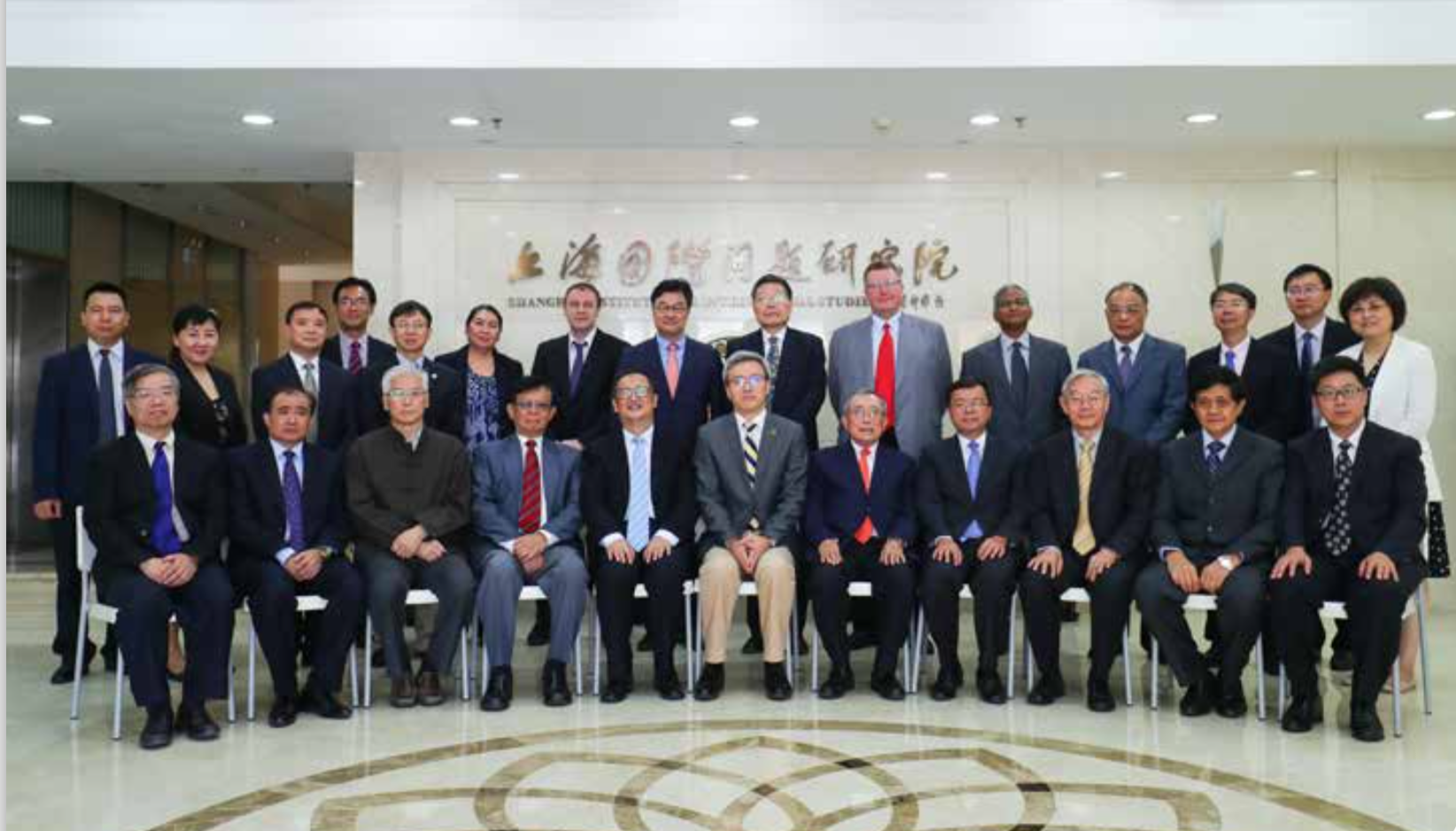
The Third KF-ASEAN Next Generation Policy Experts Forum
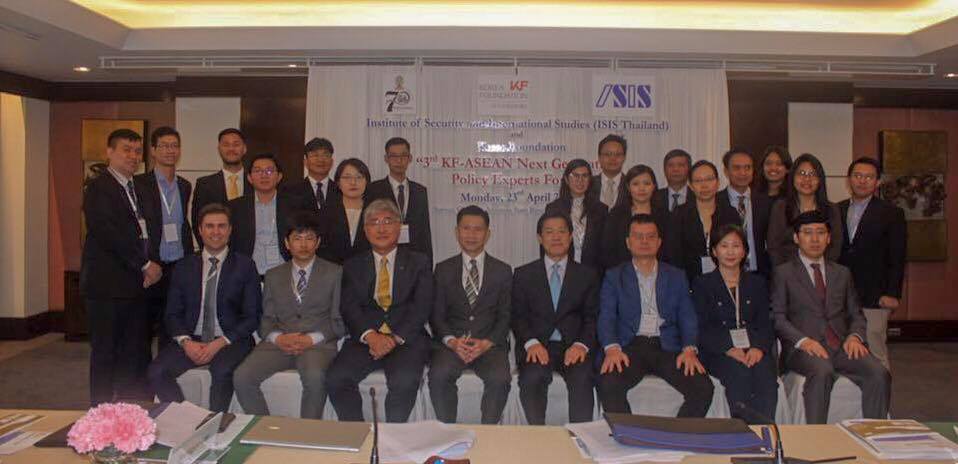
The Korea Foundation together with the Institute of Security and International Studies of Thailand organized the 3rd KF-ASEAN Next Generation Policy Experts Forum held on April 23, 2018 in Bangkok, Thailand. Since 2015, the event has brought together generations of young policy experts from ASEAN countries and Korea. The discussions focused on the promises and pitfalls for the future of geopolitical, geoeconomic and societal relations in the Asia-Pacific region. ASEAN and Korean delegates shared their views and experiences on Southeast and Northeast Asia relations.
Commentaries *
Deployment of Filipino Household Service Workers to China: Opportunities and Potential Pitfalls
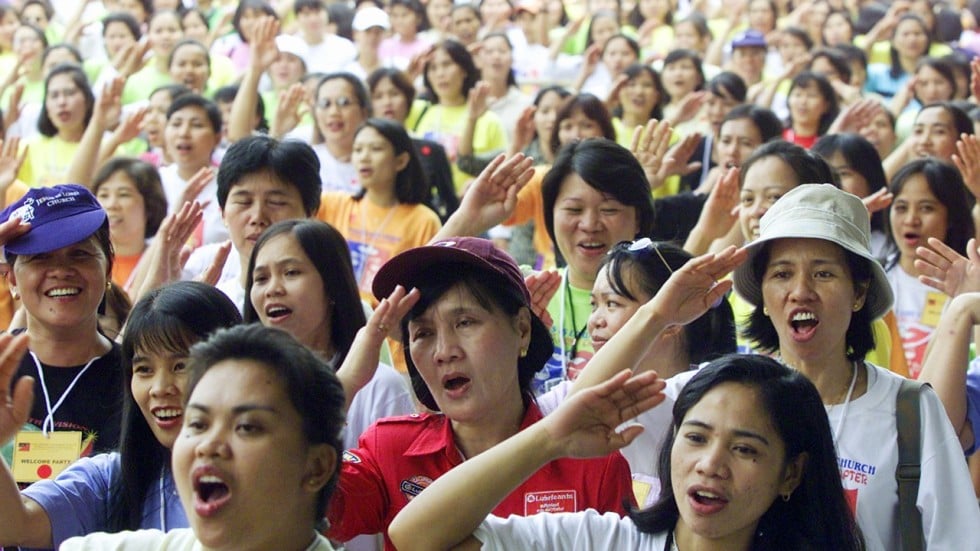
Photo from: South China Morning Post
In July 2017, the Department of Labor and Employment (DOLE) revealed that there was a possibility for China to hire Filipino household service workers (HSWs) with a high salary of up to P100,000 per month. The claim was echoed by similar statements made by President Rodrigo Duterte in January, and by Labor Secretary Silvestre Bello in February 2018. Despite the lack of an official statement from the Chinese government, China is likely to open its doors to Filipino HSWs, albeit with restrictions, given the fast-growing demand and the pressing problems it is facing in its domestic household service industry. This paper aims to provide a brief analysis of the opportunities and potential pitfalls for Philippine deployment of HSWs to China.
The Philippines Foreign Direct Investment Boom: Comparing China with the Rest

Photo from Creative Commons
In 2017, the amount of foreign direct investment (FDI) in the Philippines increased at a rapid rate, culminating in the so-called “FDI boom” of Rodrigo Duterte’s presidency. One pundit claims that the foreign direct investment (FDI) boom has little to do with China and more with other foreign investors. Countering his conclusion, I argue that such claims underestimate the amount of increases of Chinese FDI in the country, and more importantly, misconstrues the global structure of foreign capital inflows.
ASEAN and the Indo-Pacific in 2018

Photo from Creative Commons
The Indo-Pacific, as a geopolitical concept, was first coined in 2007 by Gurpreet Khurana in an article published by Strategic Analyses. Referring to the strategic and political space covered by the Indian and Pacific Oceans, the term has since been used in speeches by Japan’s Prime Minister Shinzo Abe in 2007 and US President Donald Trump in 2017. Australia’s 2012 White Paper on the Asian Century applies the concept extensively. The concept of an ‘Indo-Pacific’ thus vacillates between that of a geographical idea and a strategic area. Wedged between the two Oceans, Southeast Asia naturally plays a critical role in Indo-Pacific security.
Regional Dynamics and Mechanisms for Security Cooperation: A Philippine Perspective

Photo from Creative Commons
In 2013, President Xi Jinping announced an overarching and yet vague vision that would connect China to the former Silk Road Corridor. By the 19th National Congress of the Chinese Communist Party, the Belt and Road Initiative was written into the CCP’s constitution and now forms the crux of China’s foreign policy. While the BRI has at its core the narrative of connectivity, it also serves several strategic functions, not least of which is that it bolsters economic growth in China’s southern and western provinces in the hopes that a reduction in huge economic inequalities in these areas would lessen the likelihood of separatism and terrorism. The BRI is also meant to drive economic growth in China’s western borders, which can make for a better market for Chinese goods, and to develop markets along the Belt and Road for China’s higher-end manufactured goods, which will inevitably lead to the entrenchment of these markets in Chinese industrial standards. Most importantly perhaps is the geopolitical function that the BRI plays as it puts China in the center of a web of linkages and interconnections, including multilateral institutions and arrangements. Moreover, this look-west strategy that is hinged on accessing markets via continental means helps China overcome its maritime vulnerability.
Making the ‘Quad’ Work in Southeast Asia and the Philippines
P/ENS Dianne Faye C Despi (PROF) PN, 04 April 2018

Photo from US Embassy Manila
The complexity and uncertainty of the current regional security situation in the Asia-Pacific requires a delicate balance of the dynamics between the present superpower and emerging great power – the United States and China – to promote a stable order in the region. Security arrangements are volatile in the sense that once the scale tips in favor of one of the two countries, tensions build up between the great powers. Economic and security cooperation initiatives are interpreted as nothing but attempts to counterbalance each other, and strategic competition overcrowds the arena as cooperation is reduced to being a matter of “who is siding with whom” – a version of the New Great Game moving to India and the Pacific Rim, so to speak.
Learning New Tricks in the Indo Pacific: The United States-Philippines alliance
Dr. Gregory H. Winger, 23 May 2018

Photo Source: Council on Foreign Relations
Is it possible for an old alliance to learn new tricks? History suggests that this is extremely unlikely. A handful of organizations like NATO have succeeded in adapting to changing geopolitical landscapes, but these few survivors are grossly outnumbered by the defunct Ententes, Pacts and Grand Alliances of past generations. This question is not merely academic as the emergence of the Indo-Pacific as an arena of global competition has placed new strain on the regional architecture which has been in place since World War II. This is particularly true in the case of the U.S.-Philippine alliance which has stood as a bulwark of regional order since Commodore Dewey sailed into Manila Bay. While much of recent analysis has focused on President Rodrigo Duterte’s desire to expand the Philippine’s roster of foreign partners beyond the United States, this personality driven narrative masks a structural debate that is currently unfolding. The question is not simply whether the U.S.-Philippine alliance will survive their prickly presidents, but whether the alliance itself is even relevant in the fast-changing world of the Indo-Pacific? To address this quandary, it is necessary to look beyond the immediate dilemma which it faces and assess both the alliance’s ability to adapt to changing geopolitical circumstances as well as whether it has a role in the wider Indo-Pacific.
The Security Agenda in Singapore’s ASEAN Chairmanship
Florence Principe Gamboa and Julio Amador III, 26 May 2018
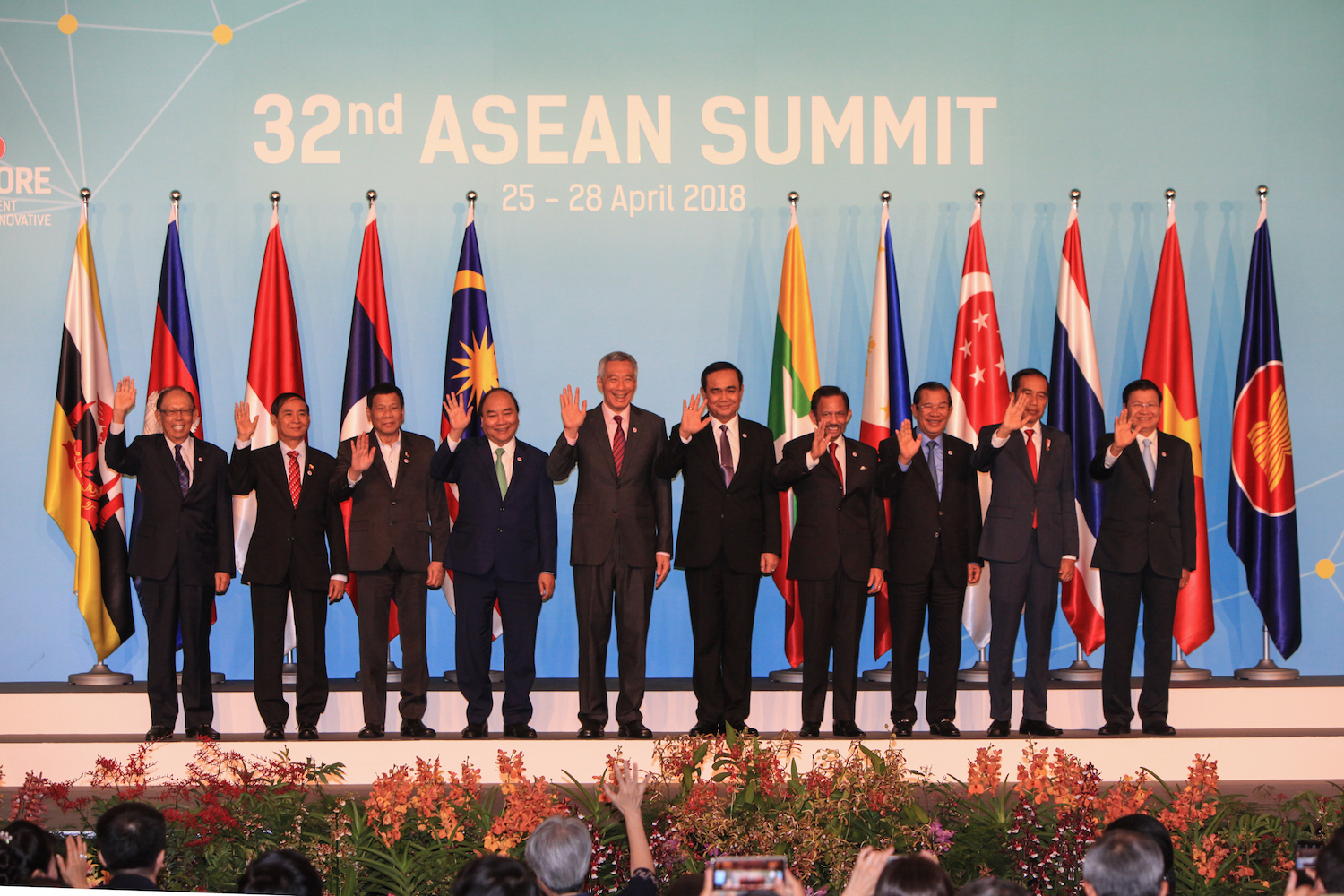
Photo from asean2018.sg
The Philippines was the center of attention of the international community last year when it assumed a significant role as that year’s chairman of the Association of Southeast Asian Nations.Major achievements of its chairmanship that have often been lauded include agreement on the Framework on the Code of Conduct in the South China Sea, and the signing of the ASEAN Consensus on the Protection and Promotion of the Rights of Migrant Workers.
Links to Papers and Presentations
Moving the ASEAN-China Strategic Partnership Forward: Confronting the Challenges and Laying the Principles
Presented by Mr. Julio Amador during the NACT Special Working Group Meeting on “2030 Vision for ASEAN-China Strategic Partnership” held last 26 January 2018 in Beijing, China. The meeting was organized by China Foreign Affairs University.
The Philippine Growth Momentum, Services, and Contentious Politics
An abridged version of paper presented by Dr. Antoinette Raquiza at the Australian National University and Philippine Institute for Development Studies’ Manila Conference 2017, “Regulation and Governance in the Philippines: Development Policy Challenges for the New Administration,” held in Metro Manila on 18-19 October 2017.
The Belt and Road Initiative: Its Relevance to the Philippines
This paper was presented by Dr. Epictetus Patalinghug at the First Shanghai Forum on the Belt and Road Initiative held on May 14, 2018. The Forum was attended by intellectuals and researchers from organizations and think tanks across China and other foreign countries.
